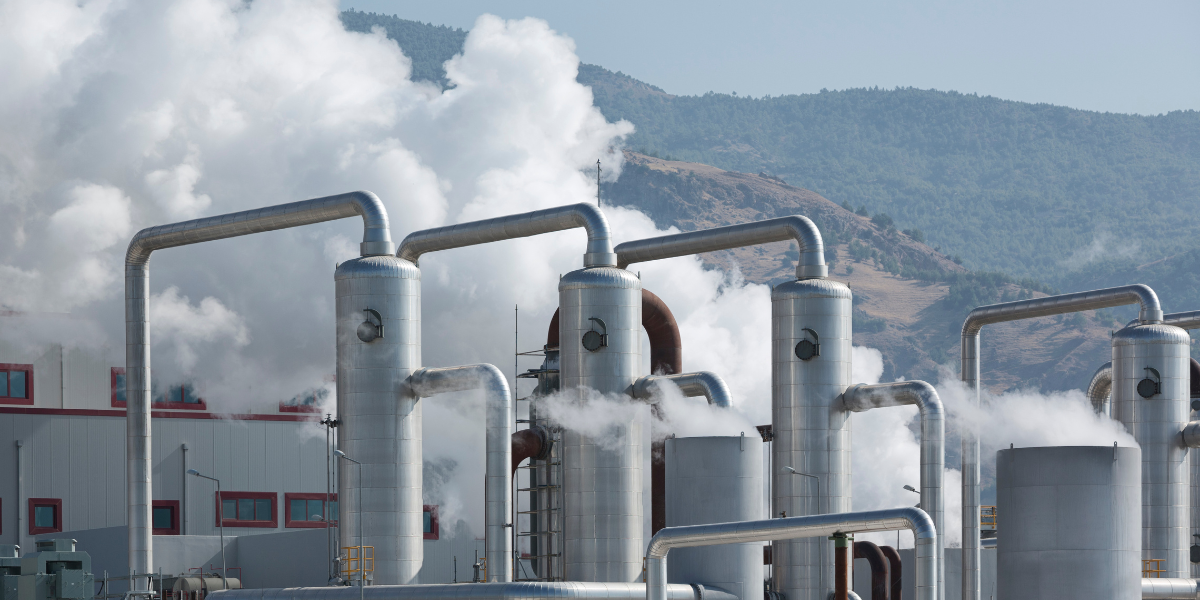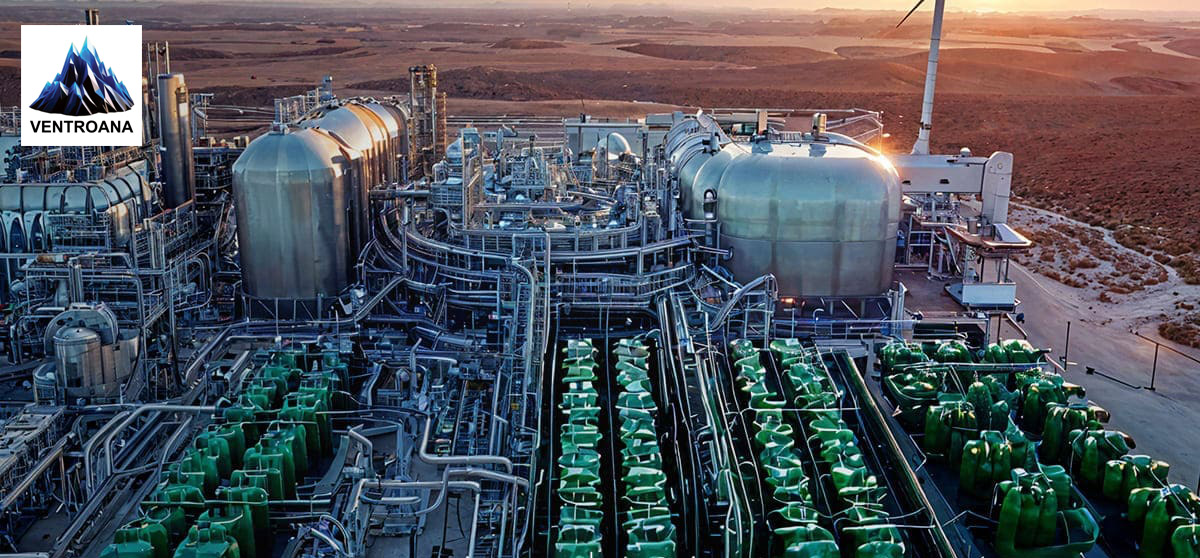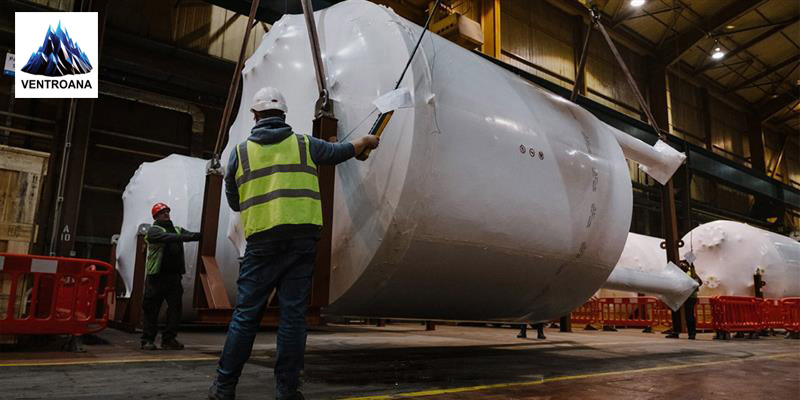Renewables
February 12, 2024

As the world's demand for clean and sustainable energy continues to grow, the search for viable renewable resources becomes more critical than ever. Geothermal energy, derived from the Earth's heat, has gained substantial attention for its potential to meet our energy needs while minimizing environmental impact. However, there is a debate surrounding the true nature of geothermal energy: Is it genuinely renewable? In this blog, we will delve into the depths of geothermal power, exploring its origins, extraction methods, environmental impact, and overall sustainability. By the end, we hope to provide a comprehensive understanding of geothermal energy and shed light on its renewable characteristics.
Geothermal energy harnesses the heat generated from the Earth's core. It is a renewable resource as it relies on the constant flow of heat from the planet's interior. The Earth's core, composed of molten rock called magma, produces an immense amount of heat due to the decay of radioactive elements. This heat energy is transferred to the Earth's surface through various geological processes, creating an abundant and consistent source of power.
Geothermal power plants utilize advanced technologies to extract the Earth's heat to tap into this renewable energy resource. There are primarily three types of geothermal power plants: dry steam, flash steam, and binary cycle plants. Each of these plants operates on different principles, but the common goal is to convert the Earth's heat into electricity.
In dry steam power plants, high-pressure steam directly extracted from underground reservoirs drives the turbines to produce electricity. On the other hand, flash steam power plants use hot water extracted from underground reservoirs and convert it into steam by reducing pressure. The steam then drives the turbines, generating electricity. Binary cycle power plants utilize a heat exchanger system, where the hot water from the underground reservoirs heats a secondary fluid with a lower boiling point. The secondary fluid evaporates and drives the turbines, generating electricity.
Geothermal energy offers numerous environmental benefits, making it an attractive renewable energy option. Firstly, geothermal power plants produce minimal greenhouse gas emissions. Unlike fossil fuel-based power plants, which release significant amounts of carbon dioxide and other pollutants, geothermal power plants emit virtually no greenhouse gases during power generation. Moreover, geothermal energy is not dependent on external factors such as sunlight or wind, making it a reliable and constant source of power. This stability ensures a consistent supply of electricity, reducing the need for backup power sources and promoting grid stability.
Another significant benefit of geothermal energy is its small land footprint. Geothermal power plants can be built vertically, occupying a relatively small area compared to solar or wind farms. This feature makes geothermal energy an excellent option for regions with limited space availability.
Geothermal energy has long been regarded as a sustainable and renewable source of power. The Earth's heat is continuously replenished through natural geological processes, ensuring a never-ending supply of thermal energy. Although geothermal is renewable, its sustainability depends on responsible management of the resource. Over-extraction of heat from geothermal reservoirs can lead to depletion and a decrease in power output over time. Therefore, careful monitoring and proper engineering practices are necessary to ensure the long-term viability of geothermal power plants.
Furthermore, the location of geothermal resources is crucial for their sustainability. While some regions possess vast geothermal potential, not all areas are suitable for geothermal energy extraction. Extensive exploration and evaluation are essential to identify suitable sites for geothermal power plants.
Geothermal energy is undeniably a renewable and sustainable power source. It harnesses the Earth's natural heat, providing a consistent and eco-friendly option for power generation. With minimal emissions, a small land footprint, and a long-term supply of thermal energy, geothermal power offers immense potential for meeting our energy needs while mitigating climate change. Nonetheless, responsible resource management and careful site selection are vital to ensure the sustainability and long-term viability of geothermal power plants. By embracing this remarkable renewable resource, we can pave the way for a greener and more sustainable future.
Tags: ["what is the renewability of geothermal power" "is geothermal energy sustainable" "is geothermal a renewable resource" "is geothermal energy a renewable resource" "is geothermal renewable" "is geothermal energy a fossil fuel" "does geothermal energy release greenhouse gases" "is geothermal a renewable energy source" "is geothermal a fossil fuel" "is geothermal a renewable source" "why is geothermal energy renewable" "why is geothermal energy considered a renewable resource" "geothermal energy is renewable" "is geothermal power renewable" "is geothermal energy renewable" "geothermal energy is it renewable" "is geothermal energy a renewable energy source" "how is geothermal energy renewable" "geothermal energy as a renewable source of energy"]

Successful Implementation of Green Hydrogen in Power Plants
Discover how green hydrogen revolutionizes power plants with sustainable energy solutions, reducing ...

Driving Innovation and Resilience: Insights from the 10th Annual Energy Supply C...
Gain insights on driving innovation and resilience at the 10th Energy Supply Chain & Procurement Sum...

Understanding EPC Engineering: Key Concepts Explained
Discover the essentials of EPC Engineering, covering contracts, project phases, and roles of EPC con...